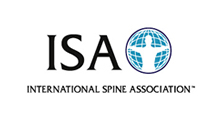
Spinecare Topics
Common Sense Advice
Sitting can place a tremendous amount of stress onto the back. Promote comfort as well as good posture. Choose a chair with good low back support. Remove any large wallet or other items from the back pocket. Additional considerations include placing a lumbar support pillow or rolled up towel behind the low back when driving or sitting for long period, adjusting the seat to keep the thighs level with the floor/ground. Move the seat forward to help prevent over-reaching to the gas and brake pedals while driving. Adjust chairs so that your feet stay flat on the floor or on a footrest. Occasional shifting of your sitting posture will help prevent progressive slumped posture secondary to fatigue of abdominal and back muscles.
Stand Smart
Lift Correctly
The act of lifting correctly often requires conscious planning. Prior to lifting, always assess the situation. Estimate the weight of the object; decide where it will be placed and the best route to get it there. Pushing is generally safer than pulling. Whenever possible obtain help from another person to reduce strain. Place heavy items onto moving devices, such as a dolly. When lifting, always bend at the knees. Avoid lifting objects overhead whenever possible. Use a footstool to reach high areas.
Prevent Falls
Falls can lead to serious back injuries especially for those who may have underlying problems such as osteoporosis, arthritis, spinal stenosis and disc pathology. Falls for older individual may lead to extremity and/or spinal fractures. To help prevent falls wear low-heeled shoes, walk regularly to maintain muscular endurance and coordination, and organize your living space to help make it fall proof. Regular exercise helps maintain and increase bone density and bone strength. A relatively common cause of serious falls in the elderly population is spontaneous hip fracture secondary to severe osteoporosis and muscular deconditioning. Obesity increases the risk for falling.
1 2 3 4 5 6 7
















